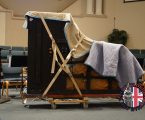How Much Can You Afford to Pay in Rent?
Figuring out how much money you can pay in fortnightly or monthly rent is crucial. Knowing precisely how much cash you need to live in a given area or property will help work out the rest of your budget and whether or not you need flatmates or other means of ensuring the rent is paid on time. Usually, it is the surrounding expenses and everyday living costs that determine whether or not one can afford to rent a given place.
 The simple and effective way to figure out how much you need and how much you can spend on rent is to grab a piece of paper (or your tablet PC) and list your weekly or monthly earnings on one side, and your weekly or monthly expenses on the other. This simple comparison will give you a relatively good idea of where you are standing in terms of financial freedom.
The simple and effective way to figure out how much you need and how much you can spend on rent is to grab a piece of paper (or your tablet PC) and list your weekly or monthly earnings on one side, and your weekly or monthly expenses on the other. This simple comparison will give you a relatively good idea of where you are standing in terms of financial freedom.
When calculating your everyday expenses, and putting them against your earnings, make sure to factor in important costs which cannot be offset or postponed. Below are some of the most common expenditures which cannot be waivered.
Council Tax – the amount of tax you owe the local council generally depends on the size of the property. It might be so that you are now paying less council tax for your current residence than you will for your new one – do the math and see which works out for you. Higher council tax might be offset by reducing the amount of another living expense, which balances out the equation.
Utility Bills (Water, Gas, Electricity) – these are essential expenses which accompany you all along. If the bills are open in your name, then you can have them relocated, or you can opt for a better deal with another service provider. Check if the new place has a prepayment meter, or the property uses standard billing.
Other/Additional Expenses – these are usually your man and van removal service costs, your telecom service bills, possibly TV license charges etc.
Insurance – securing a suitable insurance policy for your belongings is important, especially when relocating your livelihood over long distances, through various means of transport. Removal insurance is important but so is actual insurance of items for events such as natural disasters or theft and burglary are just as essential.
Travel Expenses – these must also be factored in, though they vary from person to person. Travel expenses are the money you pay to get around, whether it be going to and from work, or going to town to do some shopping, bill paying etc. The longer the distance, the more money it will cost to get there and back again. If you got the option of using public transport, calculate whether or not it is more efficient and practical to use that or go by car. Sometimes, tramming or training your way with a boot full of groceries on your hands is not the most practical way to do the job, although it might be cheaper on paper.
About author
-

-
Jeremy Oliver
Previously serving as a logistics coordinator, Jeremy's comprehensive understanding of the industry gives him the ability to translate complex procedures into easy-to-understand blog posts. He has a particular knack for tackling the intricacies of London's removals scene, from the congested roadways to the unique challenges of navigating historic neighborhoods. As an authentic Londoner, Jeremy combines practical knowledge with his inherent love for the city, offering readers not only information on man with van removals but also local insights and valuable tips.



